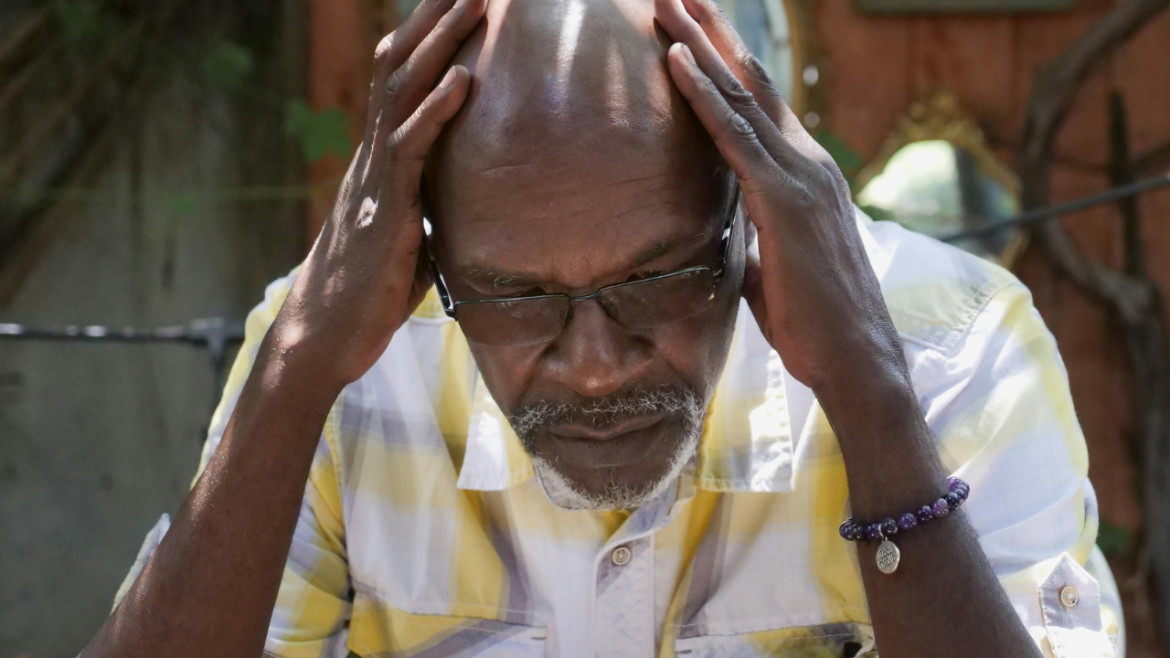What Care Does A Senior With Dementia Need?
Did you know that Leading Edge Senior Care has a Dementia Support Group? We meet monthly in Mesa. For more details <click here>
What Care Does A Senior With Dementia Need?
Dementia is a challenging condition, both for those who live with it and for their caregivers. The progressive nature of dementia means that the needs of seniors with this condition evolve over time. Understanding these needs is essential for providing compassionate and effective care.
This article delves into the various aspects of care required to support seniors with dementia, focusing on ensuring their safety, comfort, and quality of life.
What Care Does A Senior With Dementia Need?
Understanding Dementia
Dementia is not a single disease but a general term for a decline in cognitive ability severe enough to interfere with daily life. Alzheimer’s disease is the most common form of dementia, accounting for 60-80% of cases. Symptoms include memory loss, confusion, difficulty with communication, and changes in behavior. As dementia progresses, individuals may require more intensive care and support.
Creating a Safe Environment
Safety is paramount for seniors with dementia. Their cognitive impairments increase the risk of accidents and injuries. To create a safe living space, caregivers should remove hazards such as loose rugs, install handrails in bathrooms, and ensure that the home is well-lit.
Additionally, using locks and alarms on doors can prevent wandering, a common and dangerous behavior in those with dementia. These modifications help in reducing the risk of falls and other accidents, providing a secure environment where seniors can move around more freely.
Providing Emotional Support
Emotional support is crucial for seniors with dementia. The condition often leads to feelings of frustration, anxiety, and depression. Caregivers can help by maintaining a calm and reassuring presence, offering plenty of positive reinforcement, and engaging in activities that the senior enjoys.
Regular social interaction is important to prevent isolation and loneliness. Family members and caregivers should strive to be patient and understanding, as seniors with dementia may have trouble expressing themselves or may act out of confusion and fear.
Managing Daily Activities
Assisting with daily activities is a significant part of dementia care. This includes help with bathing, dressing, eating, and using the bathroom. Establishing a routine can provide structure and reduce confusion.
Caregivers should encourage independence where possible, offering assistance only as needed. Using simple, step-by-step instructions can make tasks more manageable. Adaptive clothing and utensils can also facilitate these activities, promoting a sense of dignity and self-reliance.
Nutrition and Hydration
Proper nutrition and hydration are vital for seniors with dementia. They may forget to eat or drink, or they might lose interest in food. Caregivers should offer balanced meals and encourage fluid intake throughout the day. Making mealtimes pleasant and routine can help.
Serving familiar foods and using adaptive equipment, like easy-to-hold cups and utensils, can make eating and drinking easier. Monitoring for signs of dehydration or malnutrition is crucial, as these conditions can exacerbate dementia symptoms.
Cognitive Stimulation
Cognitive stimulation is beneficial for maintaining mental function and slowing the progression of dementia. Activities such as puzzles, reading, music therapy, and memory games can be both enjoyable and stimulating. Tailoring activities to the senior’s interests and abilities helps keep them engaged.
Regular physical exercise is also important, as it supports overall brain health and can improve mood and sleep patterns. Group activities and social outings can provide mental stimulation and help maintain social skills.
Medication Management
Seniors with dementia often require medications to manage symptoms and coexisting health conditions. Proper medication management is crucial to ensure they take their prescriptions correctly. Caregivers can use pill organizers, set reminders, and keep a medication schedule.
Regular consultations with healthcare providers help in adjusting medications as needed and monitoring for side effects. Mismanagement of medications can lead to serious health issues, so vigilance is essential.
Advanced Care Planning
As dementia progresses, advanced care planning becomes necessary. This includes making decisions about future medical care, legal matters, and end-of-life wishes. It’s important to involve the senior in these discussions as much as possible, respecting their preferences and values.
Legal documents such as power of attorney and living wills should be prepared. Having these plans in place can provide peace of mind for both the senior and their family, ensuring that their wishes are honored.
Conclusion
Caring for a senior with dementia requires a comprehensive approach that addresses physical, emotional, and cognitive needs. By creating a safe environment, providing emotional support, assisting with daily activities, ensuring proper nutrition and hydration, offering cognitive stimulation, managing medications, and planning for advanced care, caregivers can significantly enhance the quality of life for seniors with dementia. It is a challenging journey, but with understanding and compassion, caregivers can make a meaningful difference in the lives of those affected by this condition.

